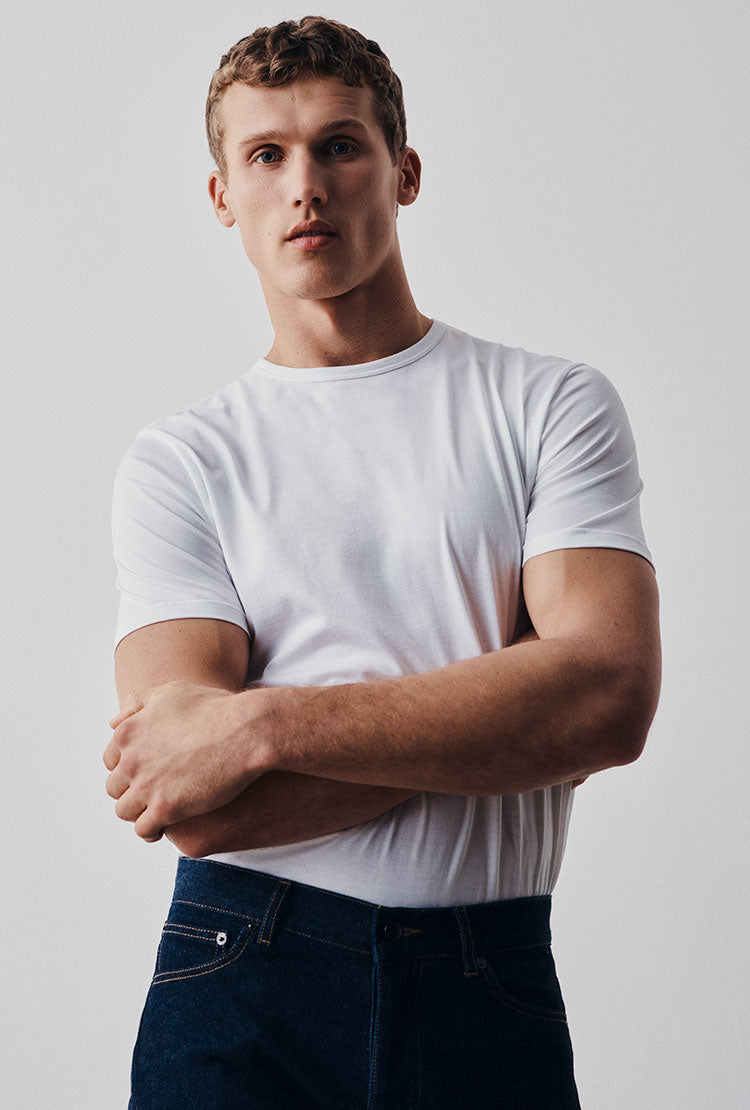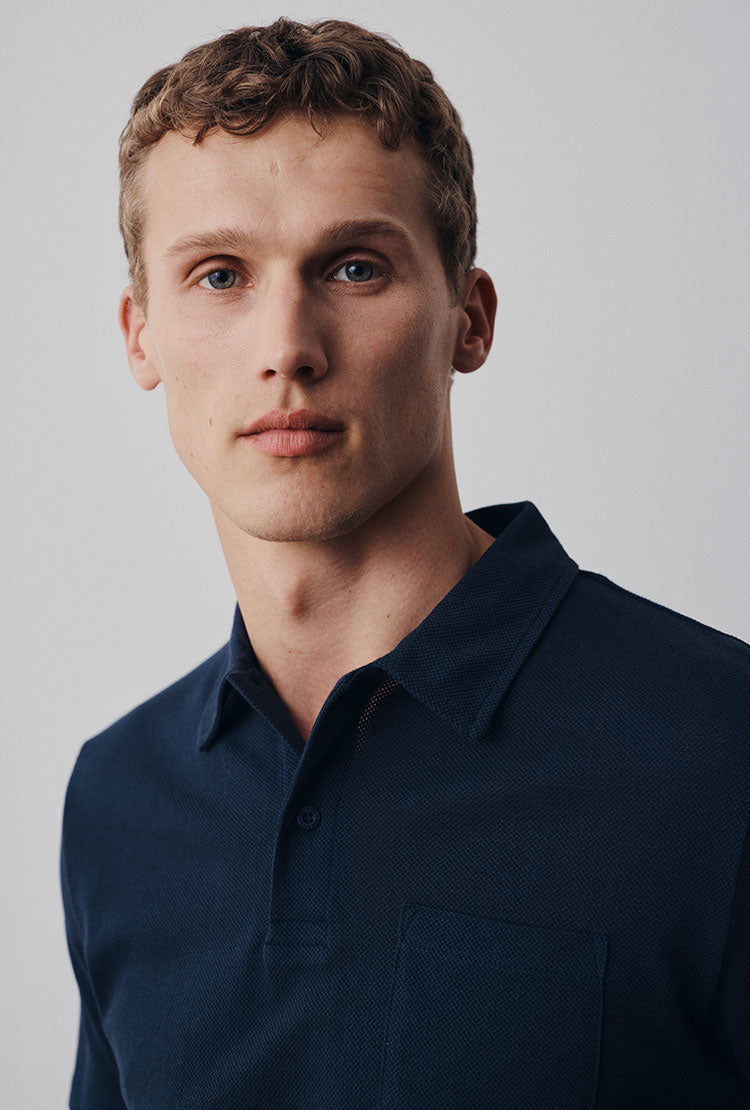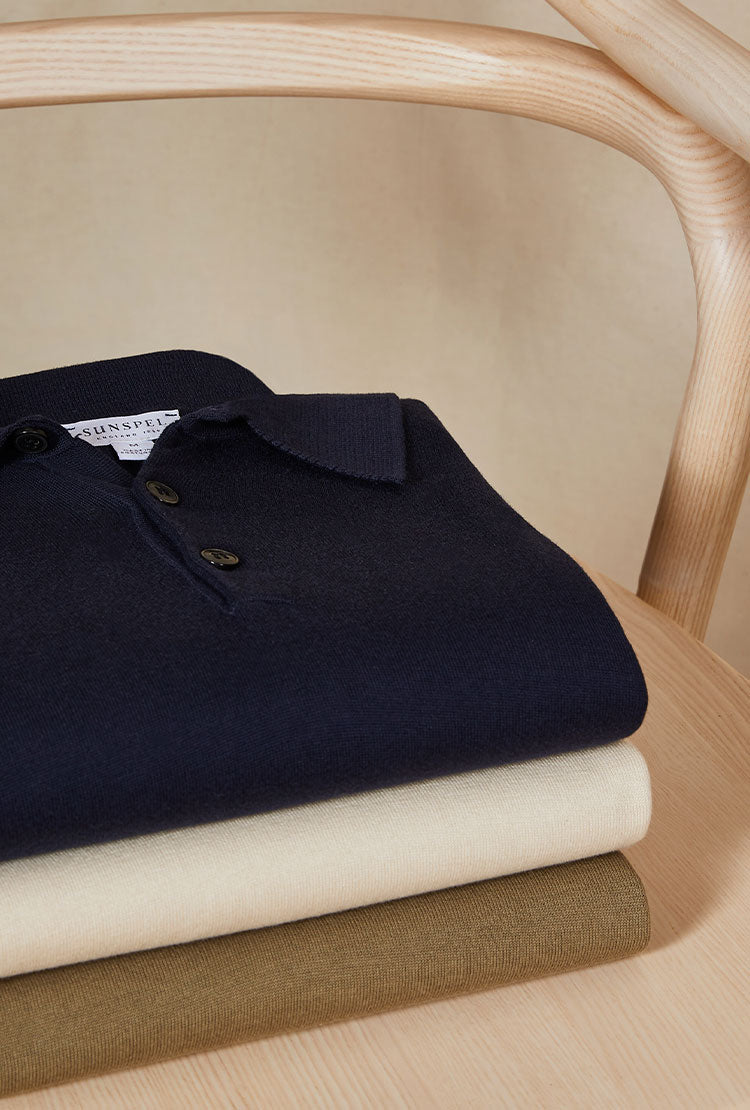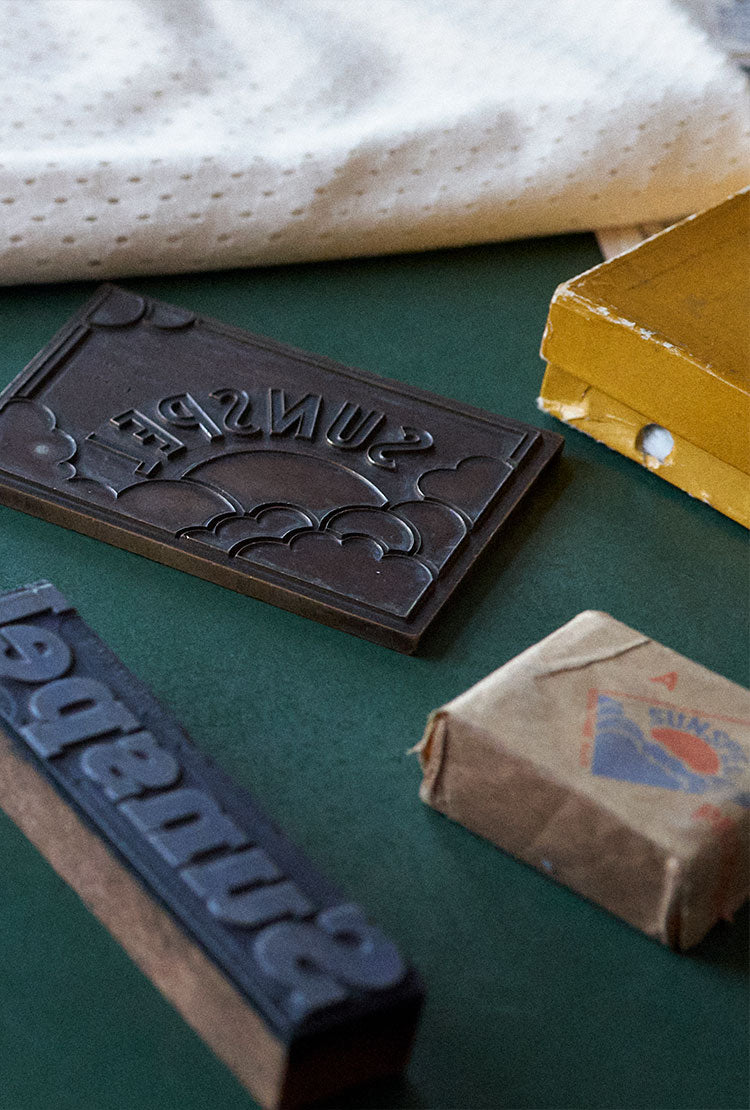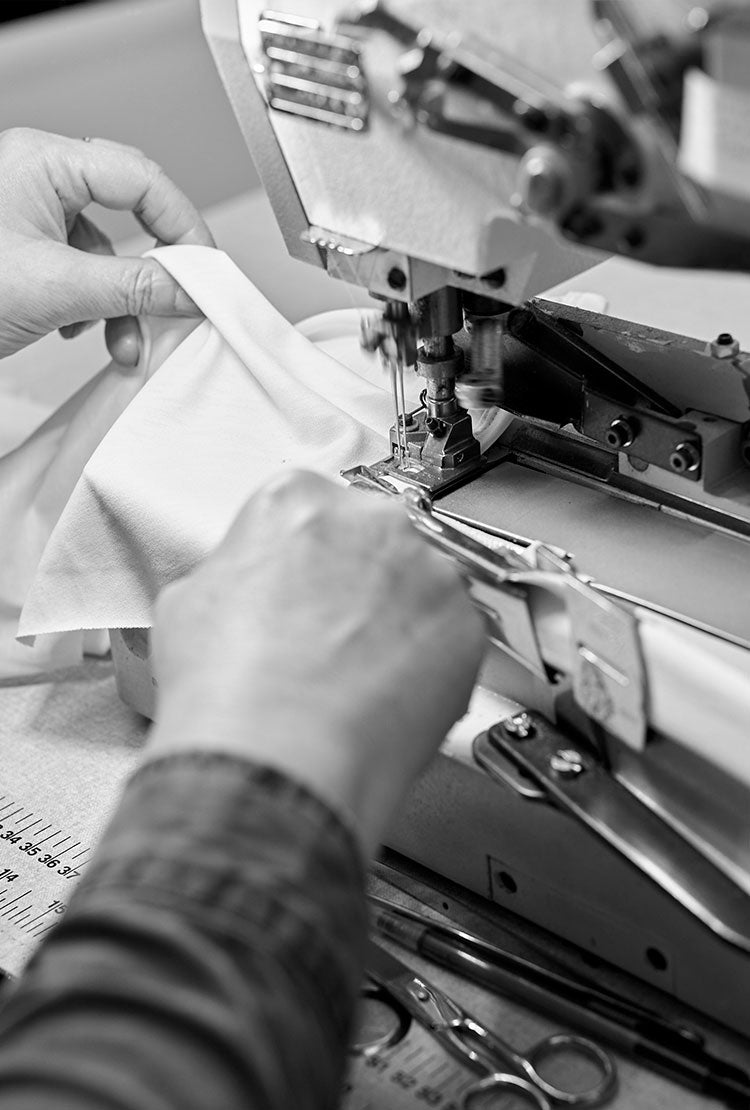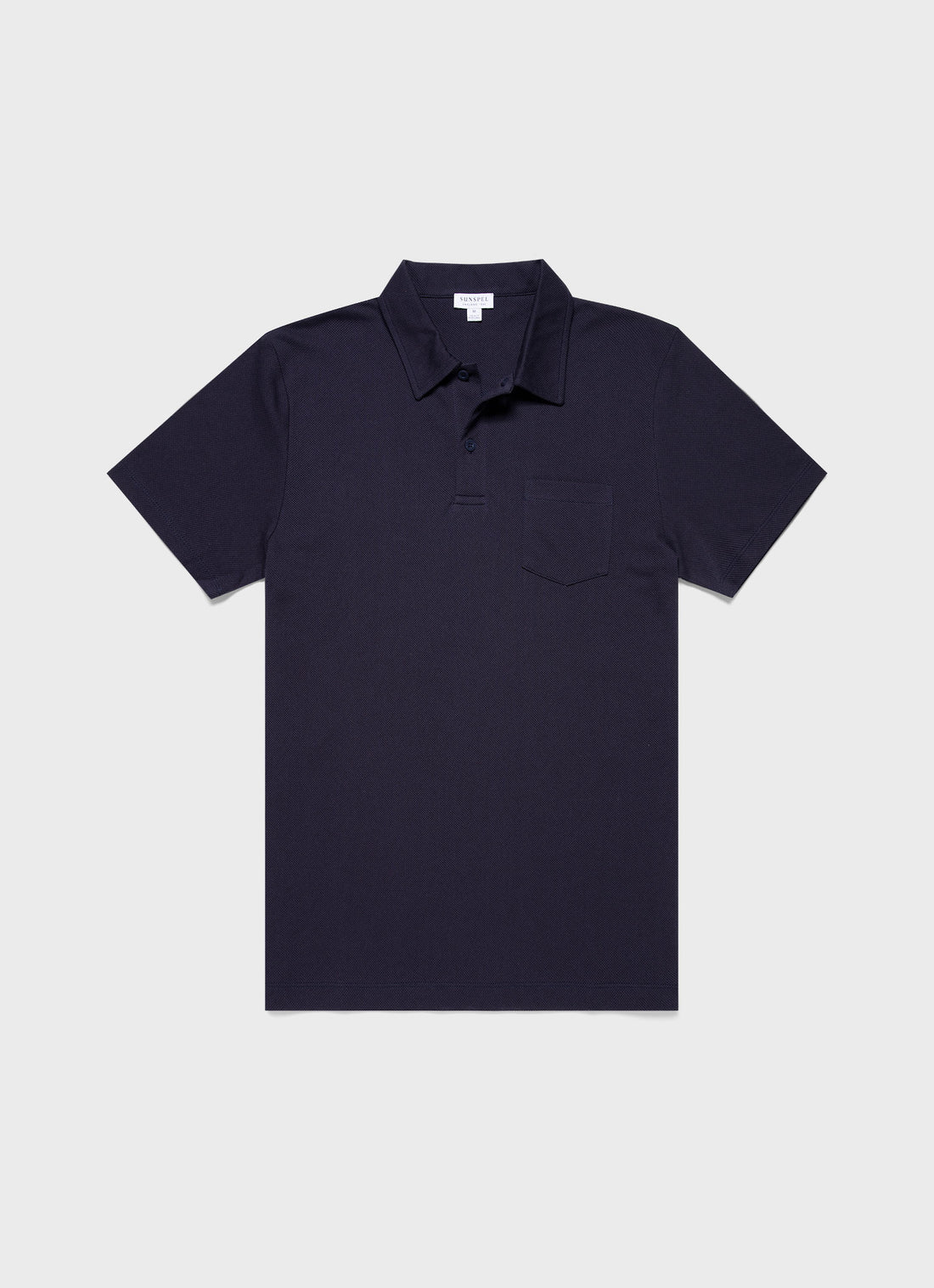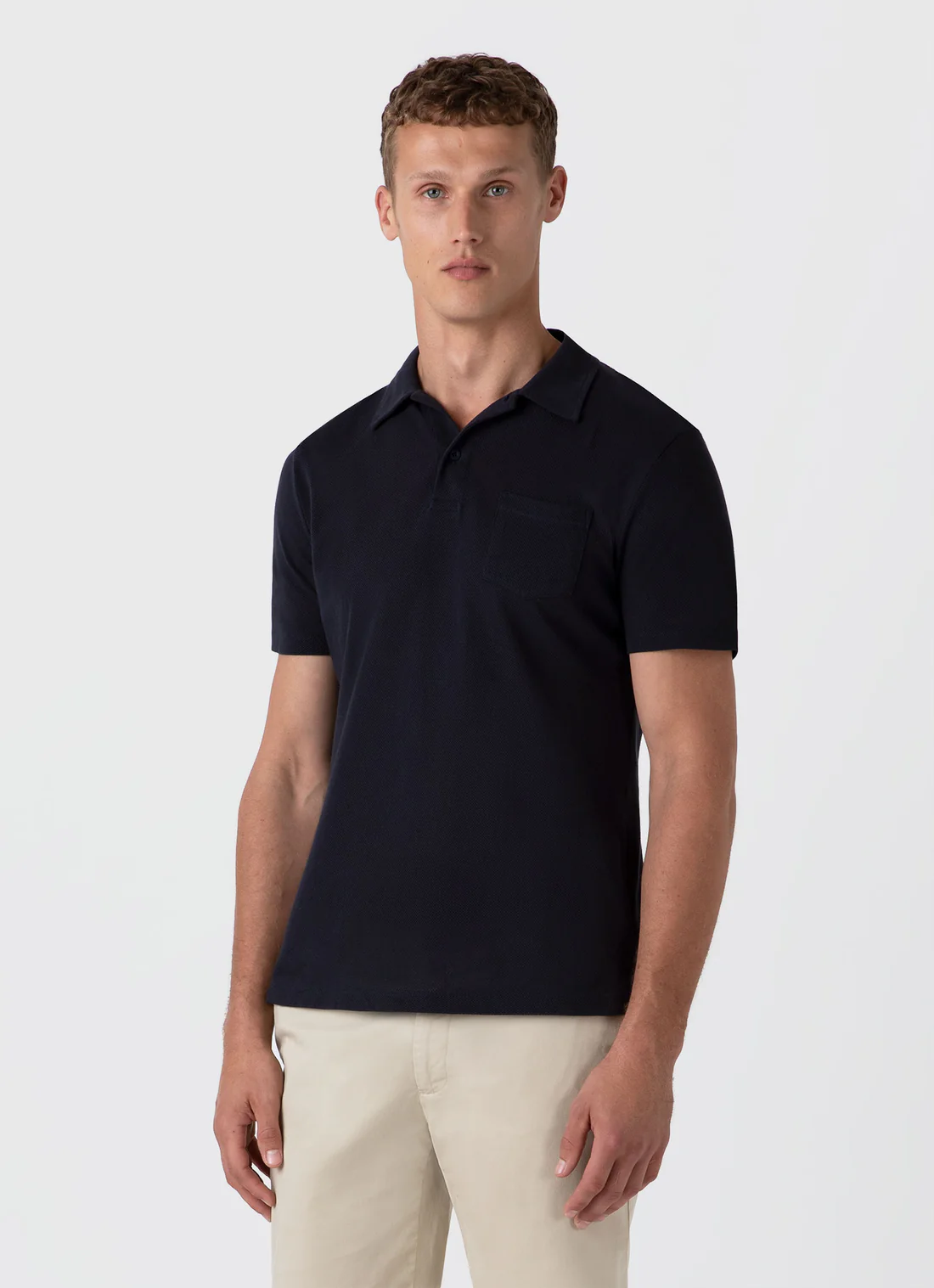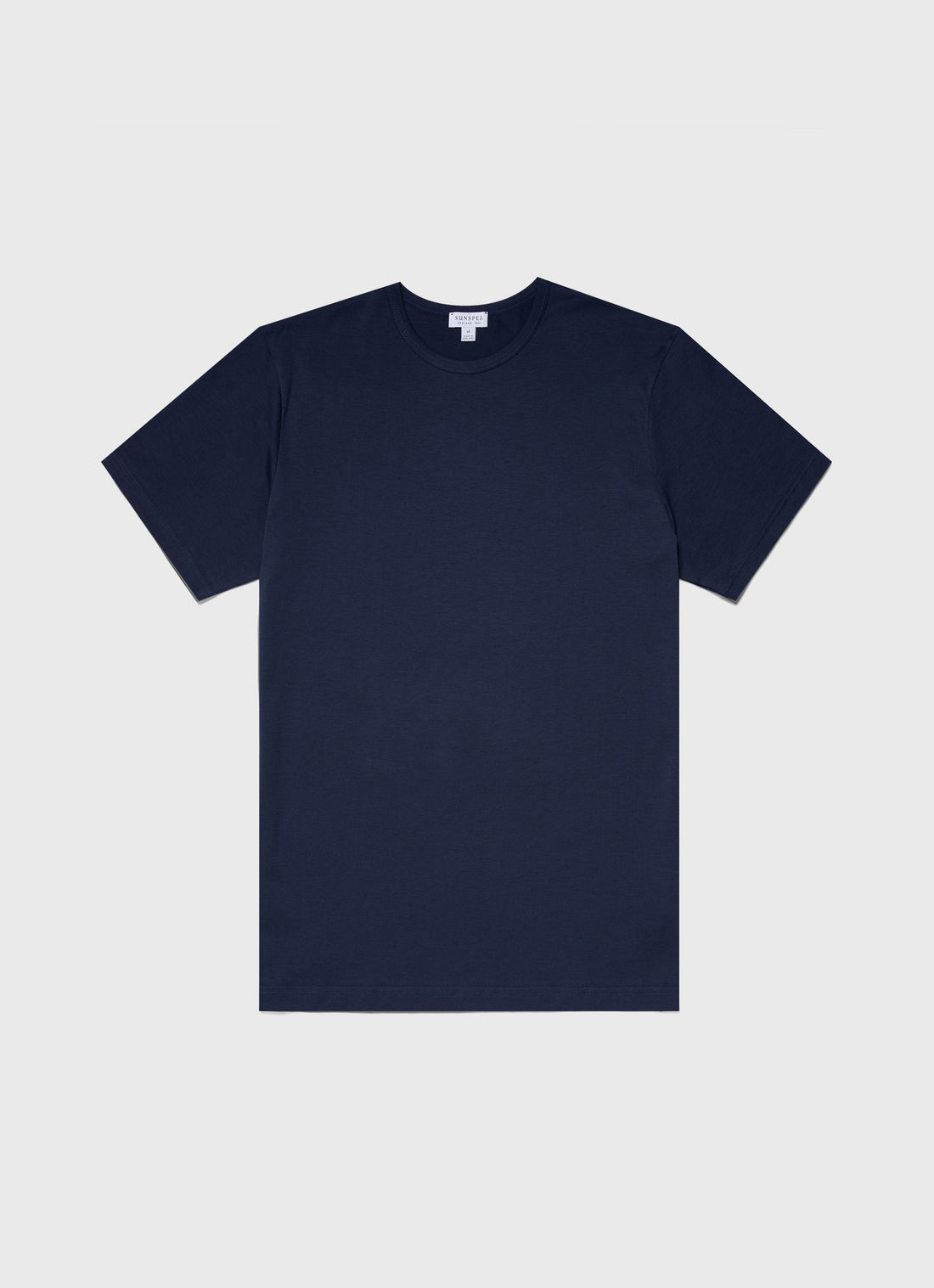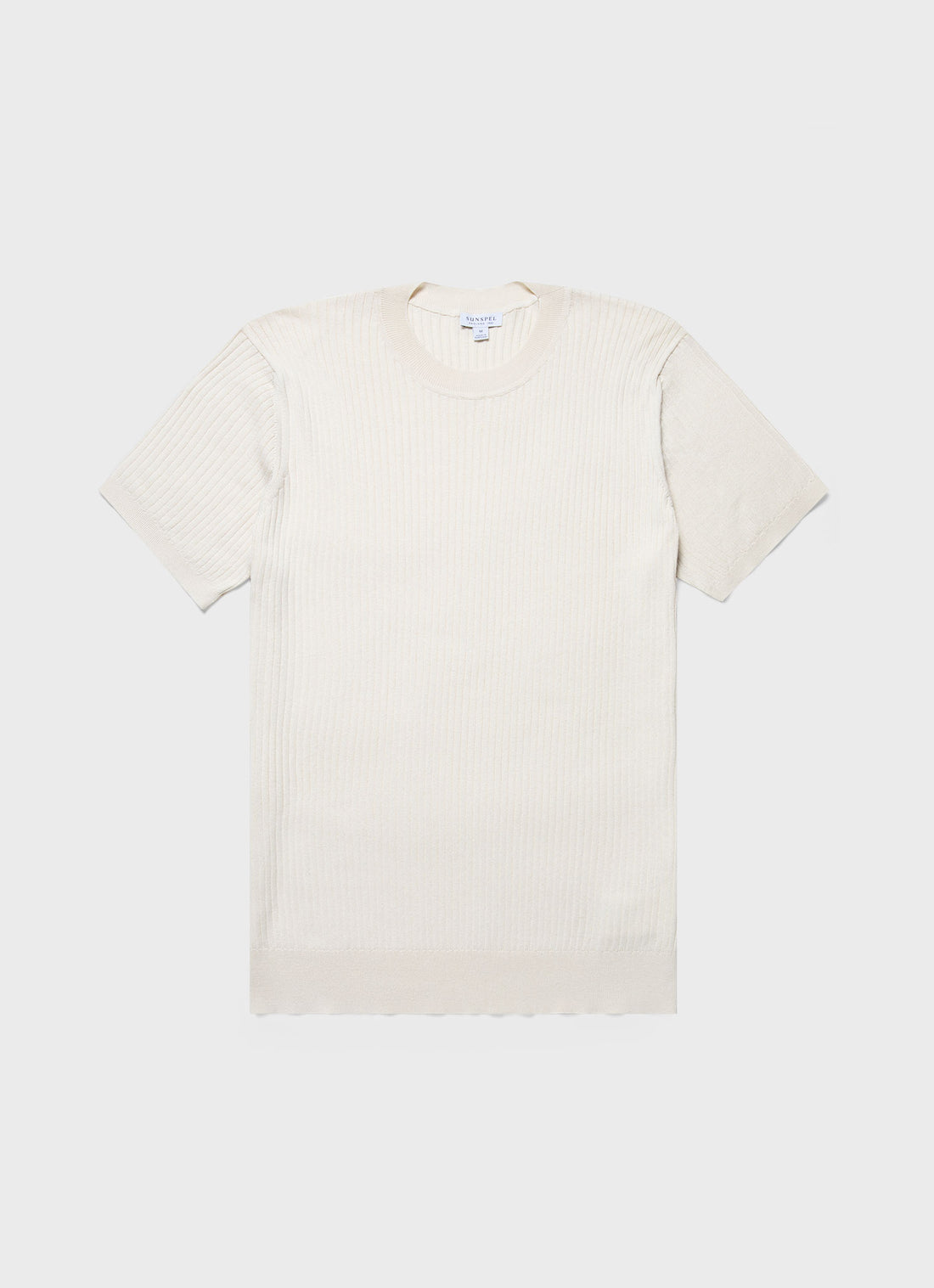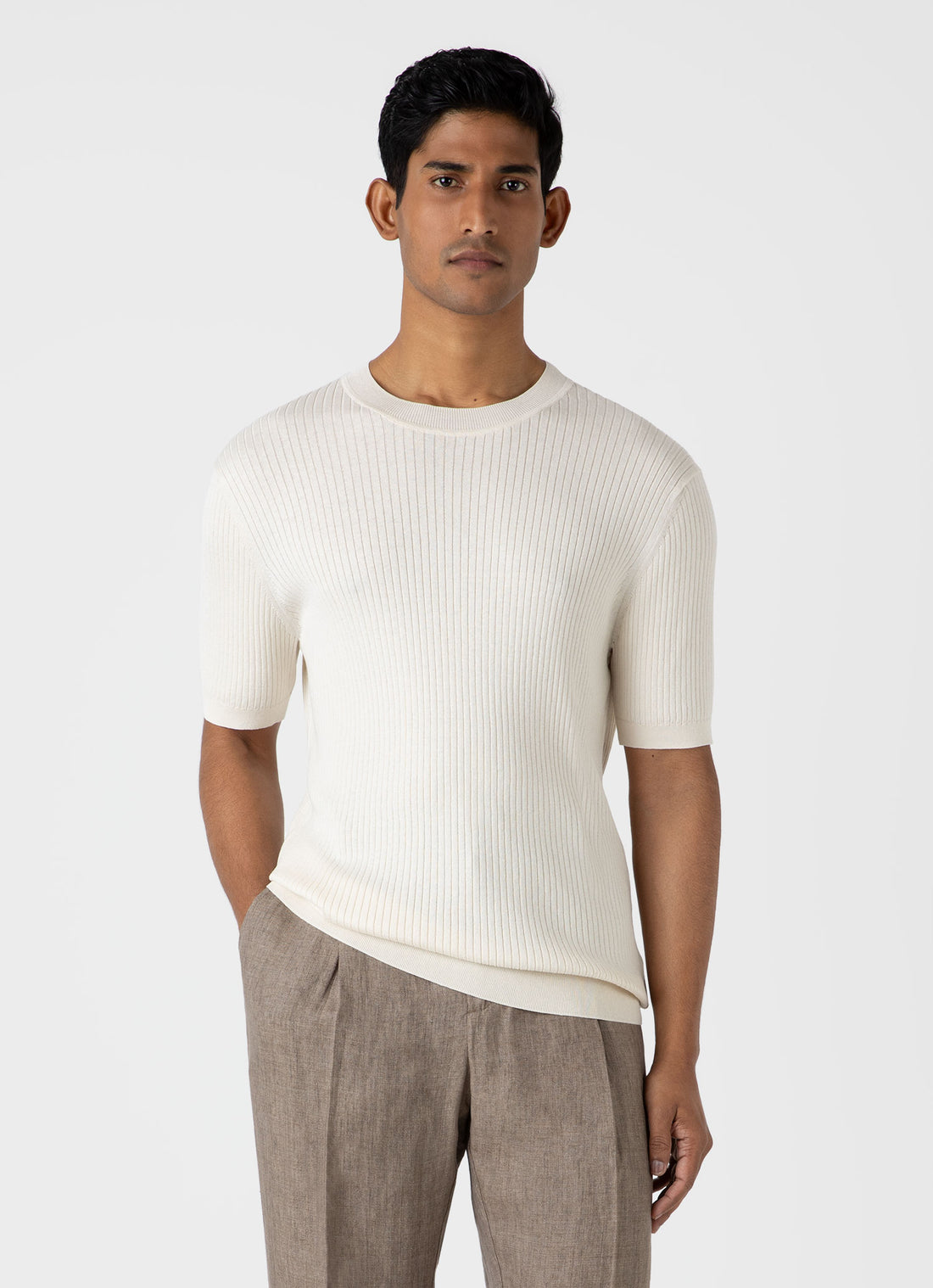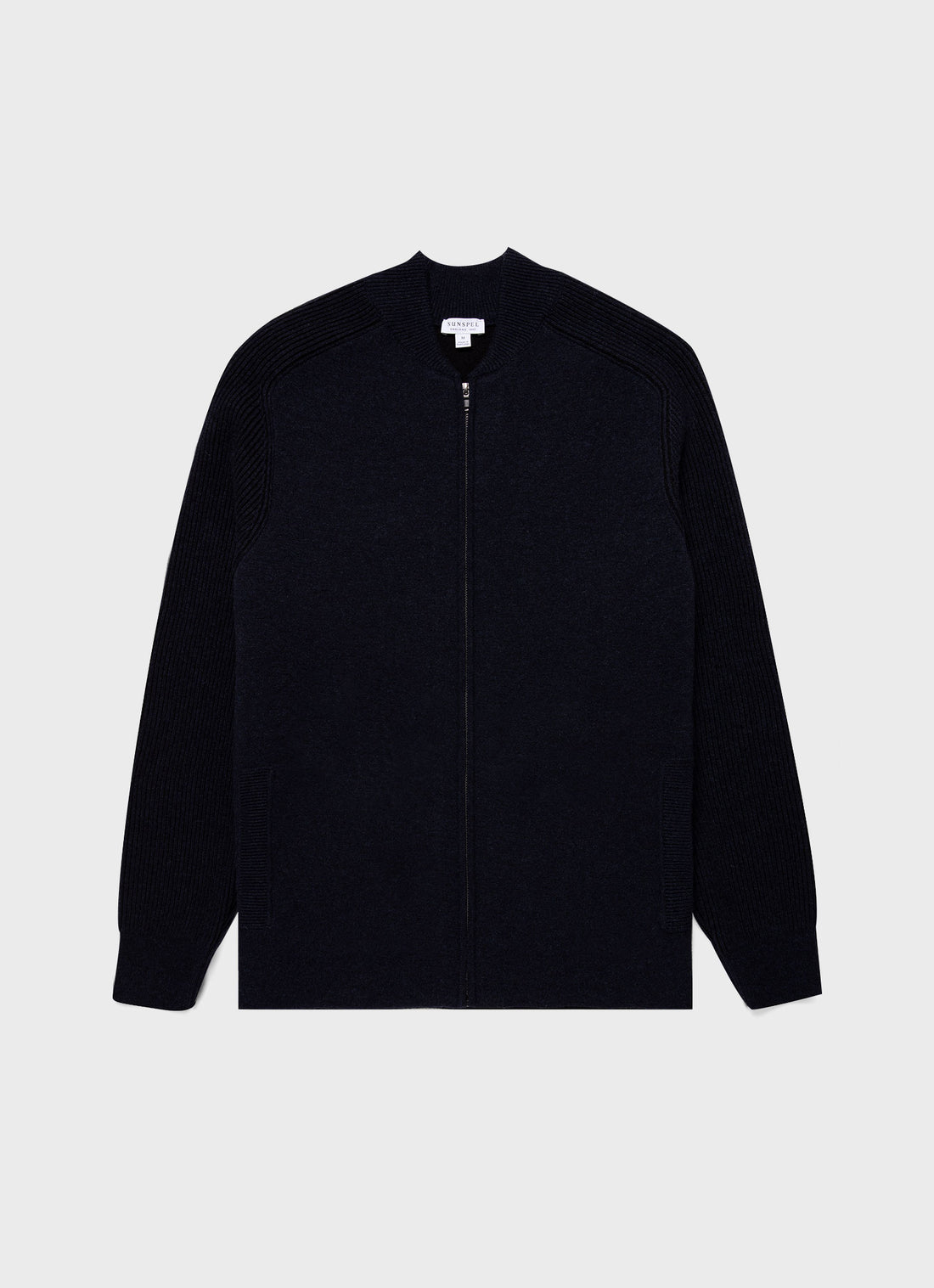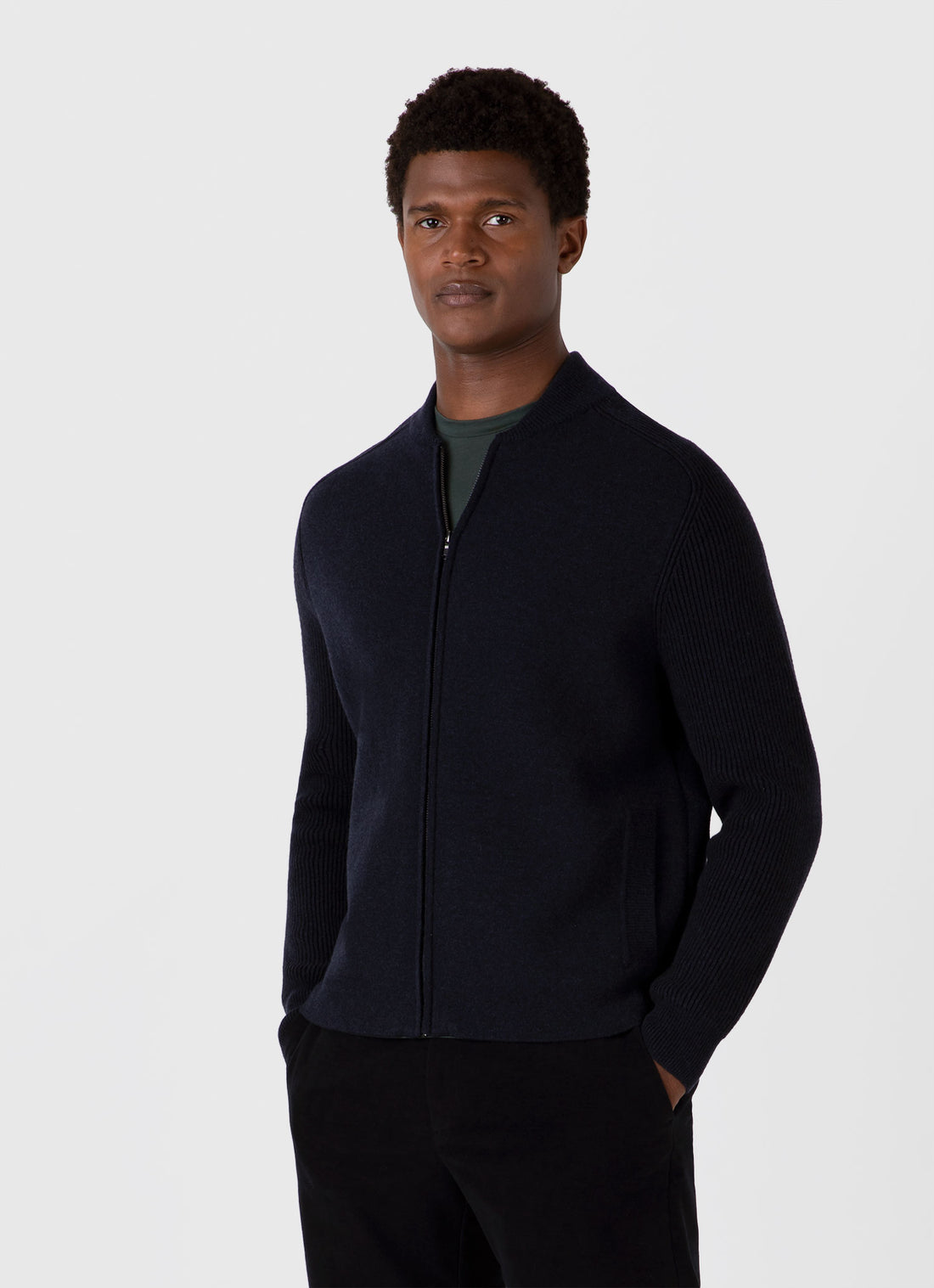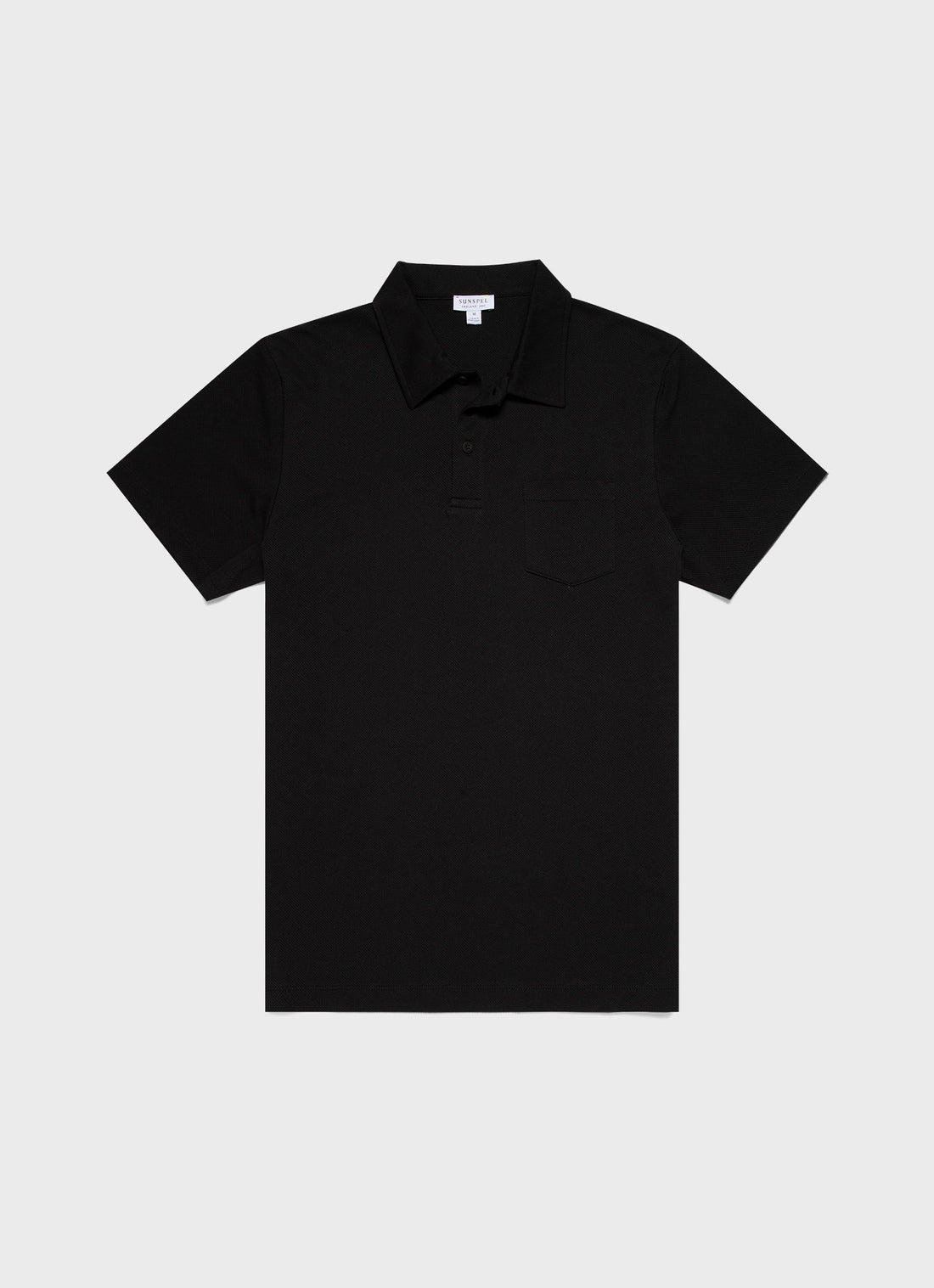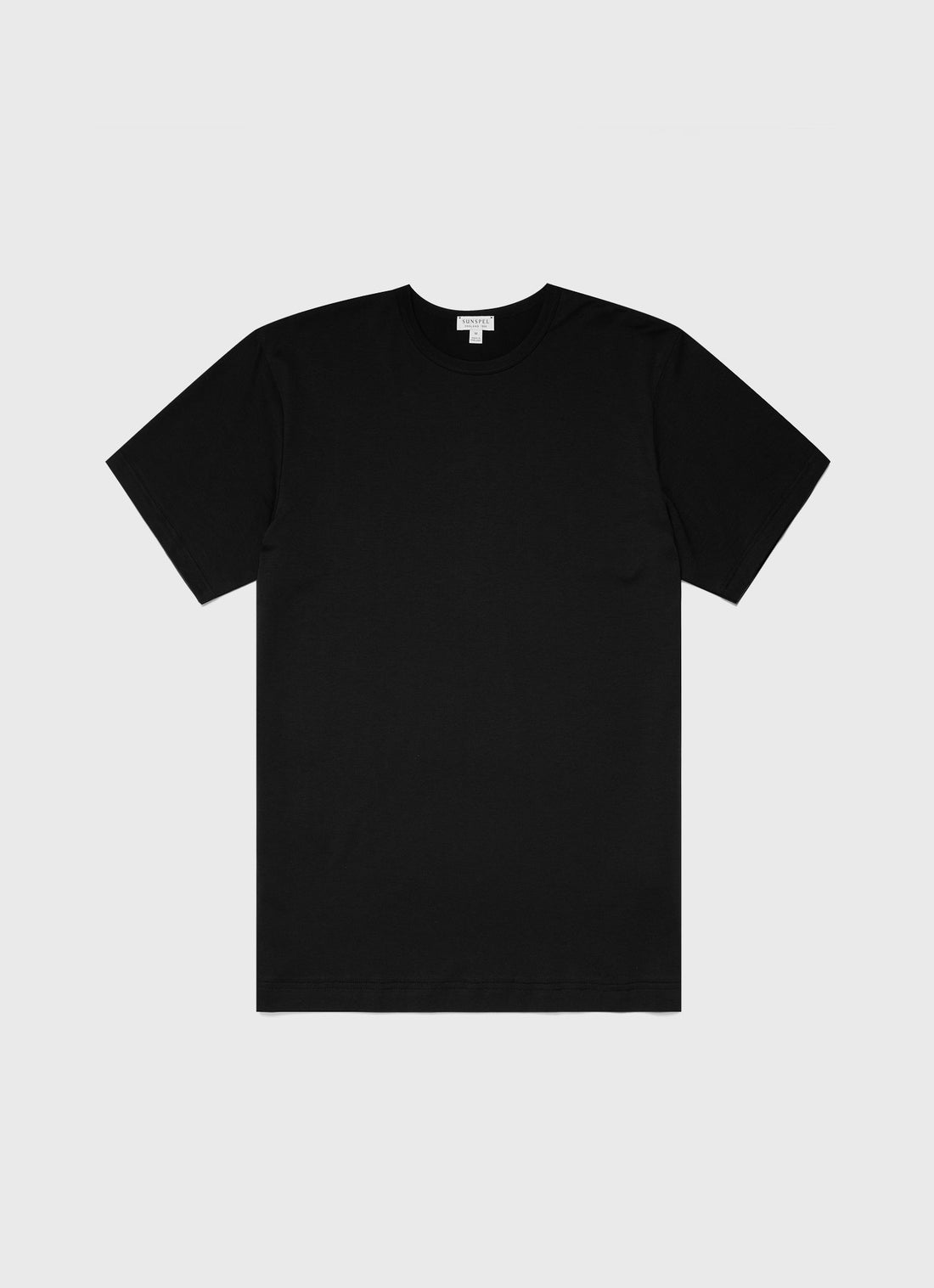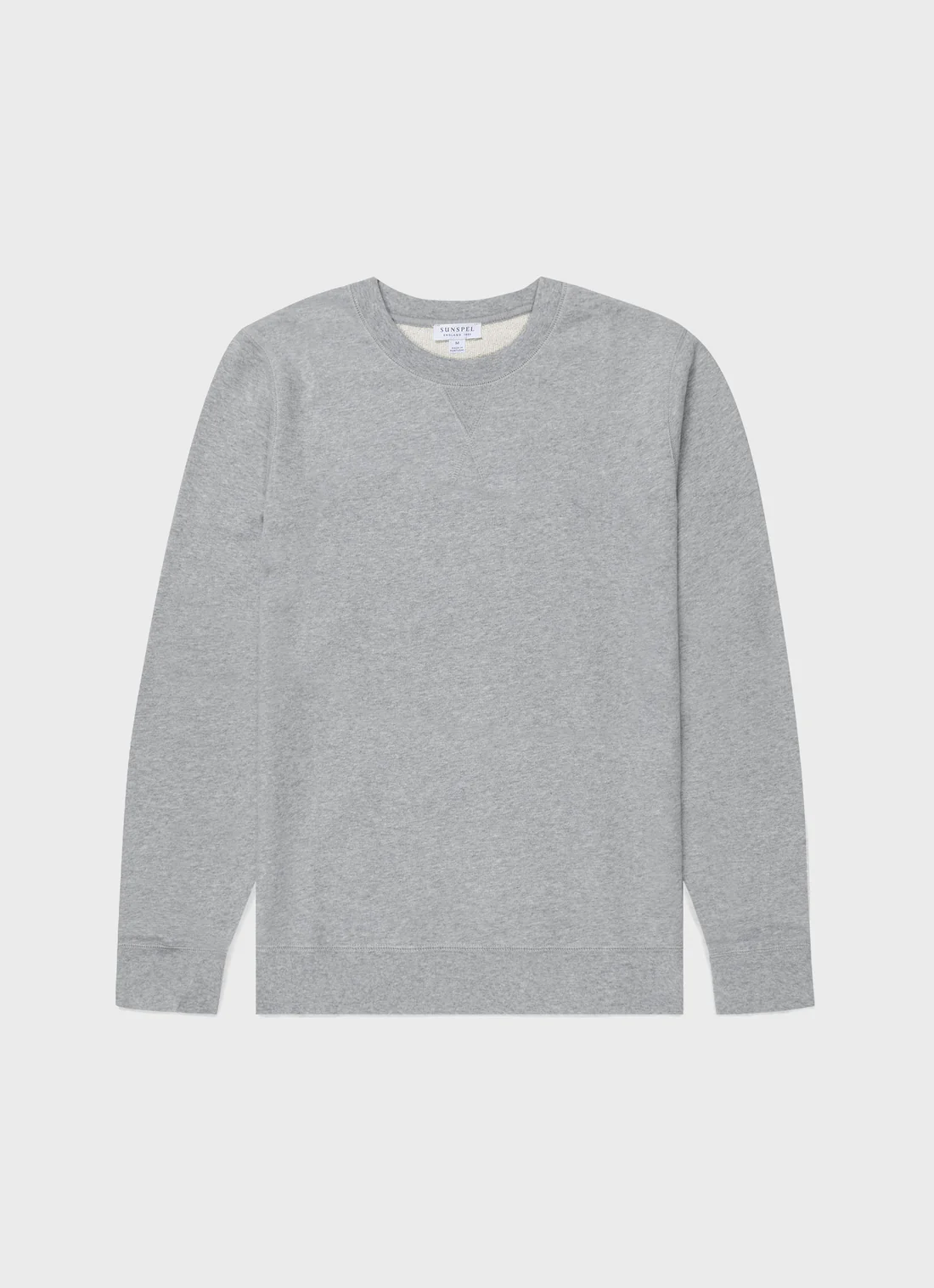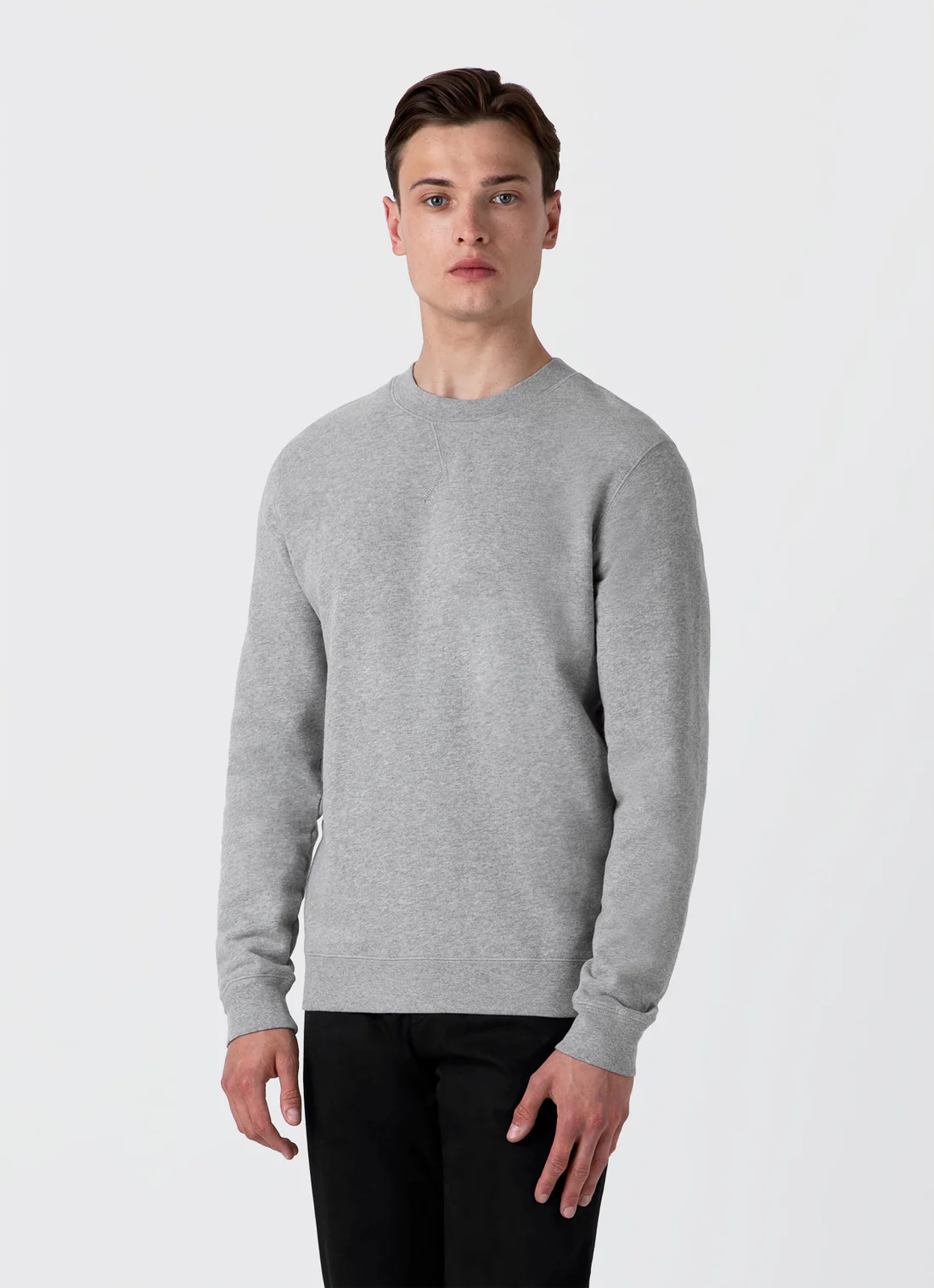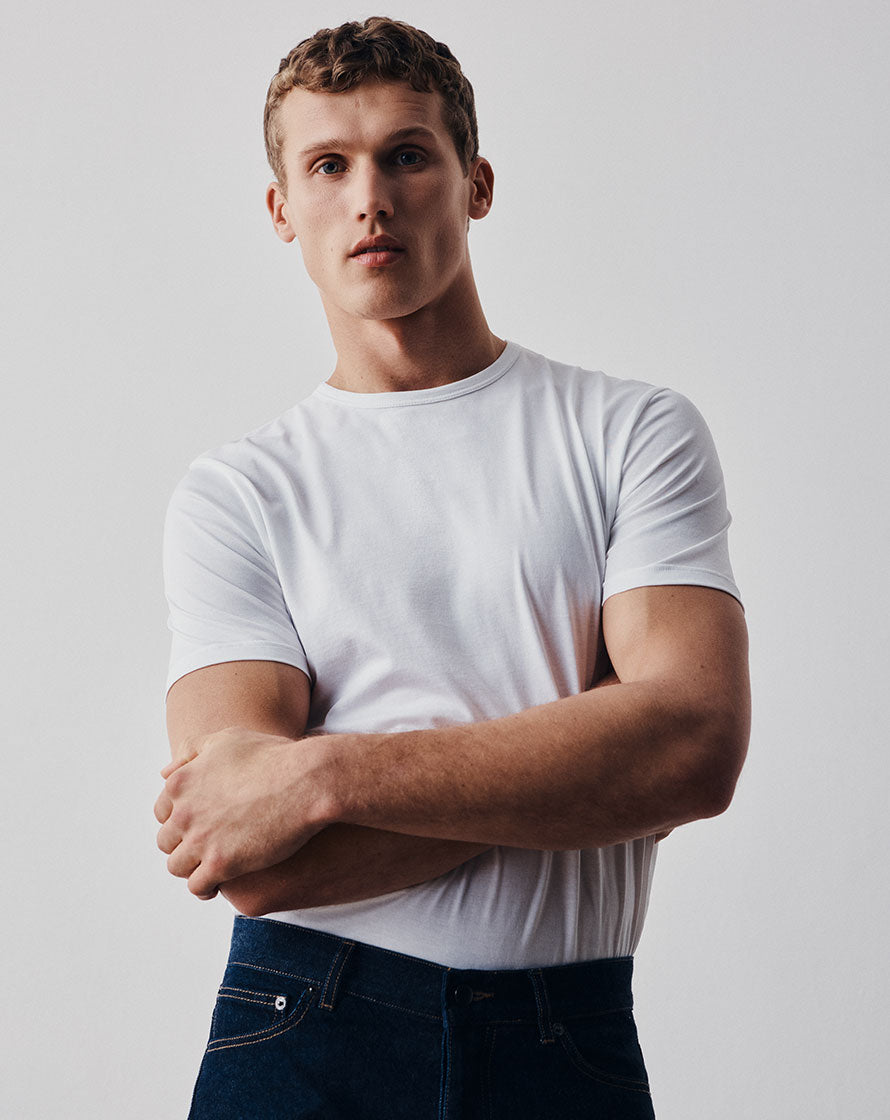About Merino wool
Luxuriously soft and naturally sustainable, Merino wool is one of the world’s most prized fabrics. Here is a guide to what makes the wool so special – and how Sunspel sources the very finest fabrics for our Merino knitwear collections and base layers.
What is Merino wool?
Merino wool is the natural fibre grown by Merino sheep, and it has many remarkable properties: it is naturally breathable, moisture-wicking, odour-resistant and sustainable. Above all, it is extremely fine – and therefore, extremely soft.
The fineness of wool is measured in units of one thousandth of a millimetre, or ‘microns’. Most Merino wool is considered ‘very fine’, meaning that the individual fibres average less than 24 microns in diameter. Sunspel’s extrafine Merino has a measurement of just 19 microns, which is less than a fifth of the width of a typical human hair. When fabrics have such a degree of fineness the fibres bend when they brush against the skin, eliminating the prickliness of coarser materials and giving that instantly-recognisable feeling of luxury.
As well as being exceptionally soft, Merino clothes naturally regulate the wearer’s temperature. Merino sheep happily live in extreme climates, both cold and hot. The fibres in the wool have a crimp which traps warm air and provides insulation in cool weather. And in warmer weather the porous fibres provide moisture-wicking, transporting sweat quickly away from the skin so that the wearer stays cool and dry, with none of the clammy feeling of synthetic materials. This makes Merino perfect for thermals and base layers, regulating temperature for winter sports.
Even more conveniently, it absorbs the odours caused by the bacteria in sweat, meaning that Merino wool clothes are naturally odour-resistant and do not need to be washed after every wear.


The Merino sheep
Given these qualities, it is hardly surprising that Merino sheep are prized around the world for their wool – and have been for centuries. The breed originated in 12th century Spain, where wool was long a vital export industry, but from the nineteenth century onwards the global centre of Merino farming shifted to Vermont, USA, and then to New Zealand and, especially, Australia. Today there are some 125 million sheep in Australia, including special Australian varieties of Merino such as the Peppin. These are the distinctive Merino sheep familiar today: white-faced, curly horns on the rams and the dense, crimped woolly coats that must be shorn once a year.
One controversial element of Australian sheep-farming was the practise of mulesing – the removal of skin from the hind end of the sheep in an attempt to protect against the parasitic infection flystrike. Today the procedure is widely regarded as unnecessarily cruel, and alternative methods are available.
All Sunspel Merino wool comes from ethically-reared, non-mulesed sheep.
The Merino manufacturing process
The process of turning raw fleece into knitwear has a series of steps, each requiring particular skills and machinery. This is particularly the case for Merino because it is such a fine wool. Sunspel’s Merino garments are designed in England – but to manufacture them we go to the world’s leading specialists.
Scouring and carding
It begins with scouring – a cleaning process to remove dirt and also lanolin, the wool’s natural grease, which is saved and used in a huge range of household products. The wool is then passed through a series of metal teeth that disentangles, straightens and intermixes the fibres to produce a continuous web or ‘sliver’ - a process known as carding.
Spinning
Next comes spinning: fibres are twisted together into single strands of yarn which is then woven into a fabric, and can undergo various finishing procedures such as fulling (immersing the fabric in water so that the fibres interlock) and dyeing.
Sunspel’s Merino yarn is made in the Italian region of Piedmont – a centre of wool-spinning expertise since the Middle Ages. Our extrafine 19-micron Merino fabric is crafted by a business established in 1817, while the heavier merino wool used for Sunspel’s jackets and knitwear is made by a specialist yarn spinner in the Piedmont town of Biella, nestling at the foot of the Alps.
Both factories use ethical, non-mulesed wool and conform to OEKO-TEX standards, meaning that every single component and detail of the article has been rigorously tested to ensure there are no ecologically harmful substances.
Knitting
Finally, the Merino fabric is knitted into garments. There are different weights of knit, measured in terms of the ‘gauge’, which refers to the number of stitches a garment has per inch. The gauge depends on the size of the needle, the stitch pattern and the yarn itself: the finer the needle or yarn, the slighter the stitch will be and therefore the higher the gauge. So a fine Merino jumper might have a 27-gauge weight, while a chunky sweater might have a 7-gauge weight.
We work with a factory in Portugal established in 1969 that specialises in traditional flat bed frame knitting, using vintage 1960s Bentley cotton machines fitted with bespoke needles that can give a refined, flat finish to high gauge knitwear.
There is a close and natural affinity between the craftsmen of Braga and the Sunspel ethos: the knitting techniques – and indeed the Bentley machines themselves – were brought over to Portugal from Loughborough, not far from our own factory in Long Eaton.

Merino wool spinning in Biella, Italy

Sustainability
One very important benefit of Merino wool is that it is a sustainable material. It is a renewable resource – each Merino sheep can grow between four and five pounds of wool every year – but it is also naturally biodegradable. Made of proteins composed of amino acids and natural compounds, Merino wool will disappear if buried in the ground after about 12 months, releasing carbon and nutrients back into the soil.
Merino’s natural odour-resistant properties means that a Merino garment does not need to be washed too frequently - once or twice a season is usually fine – saving on resources. And it is also a durable fabric: Sunspel’s Merino knitwear – in classic, timeless designs – are made to last you for years to come.

Fine Merino Wool Zip Neck in Black





